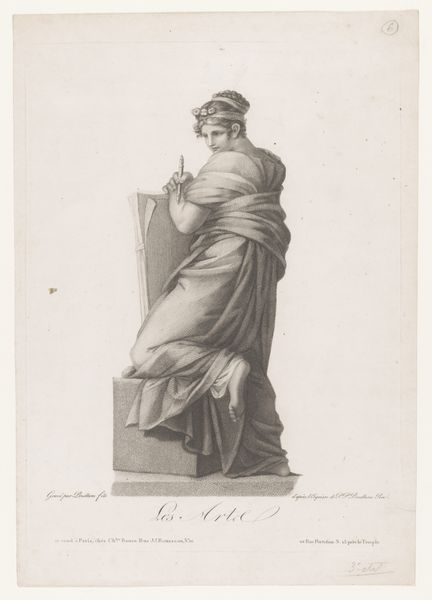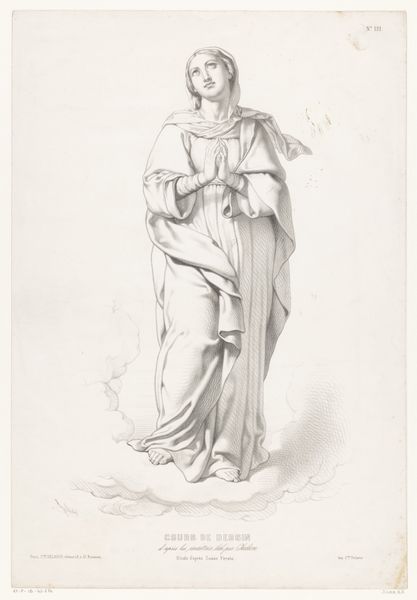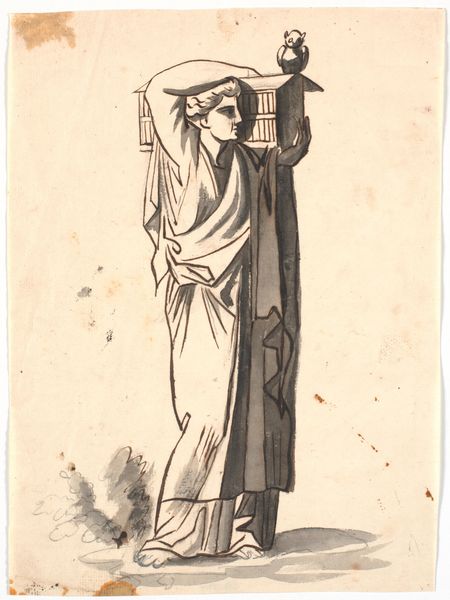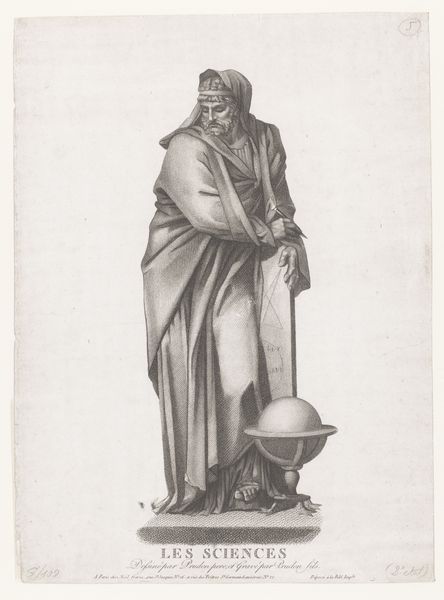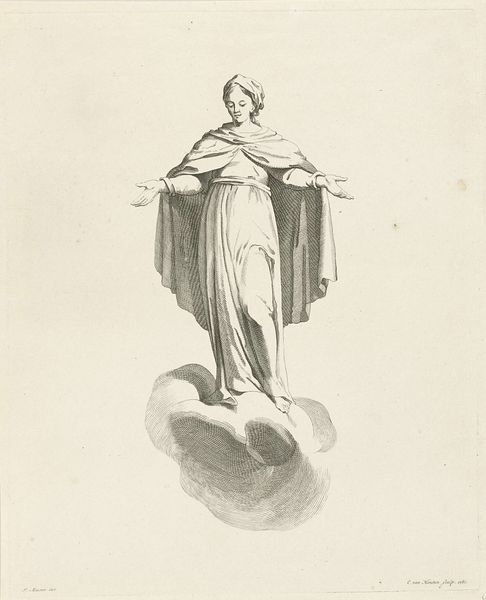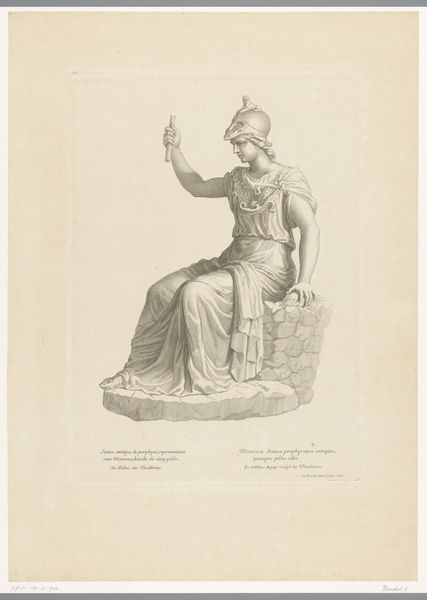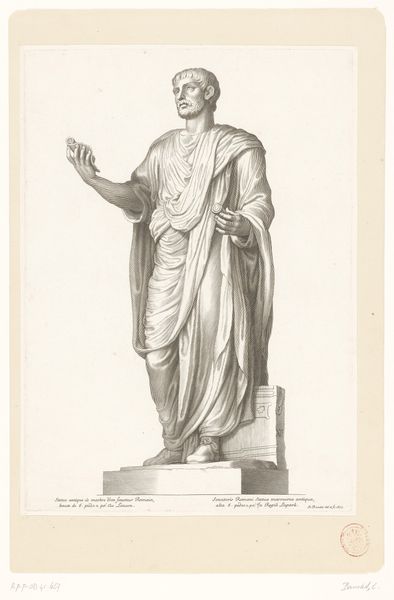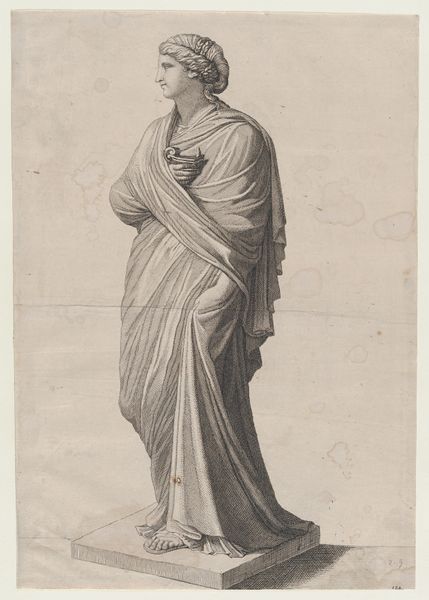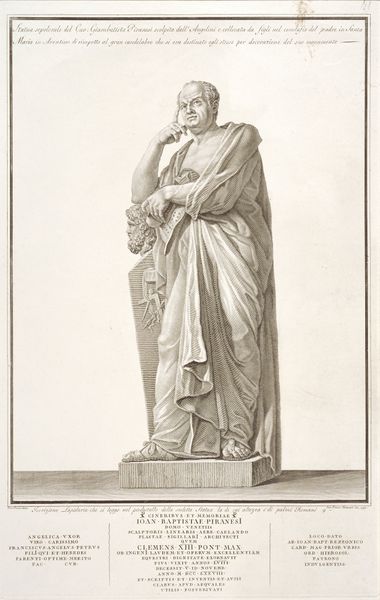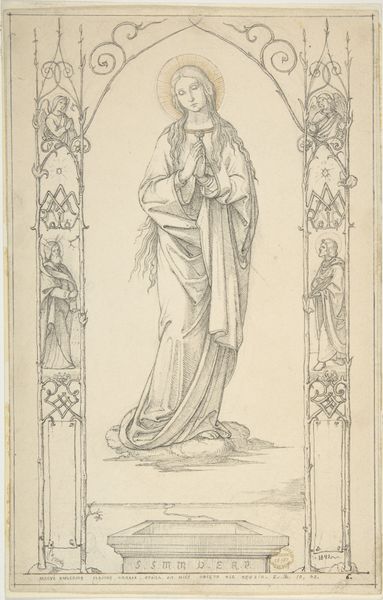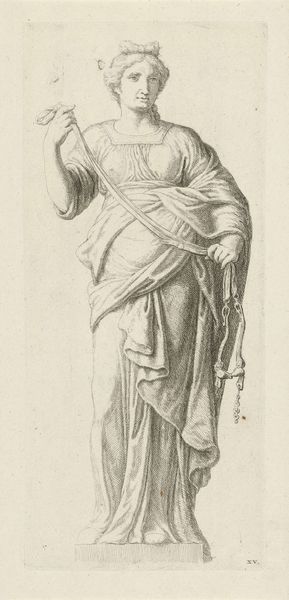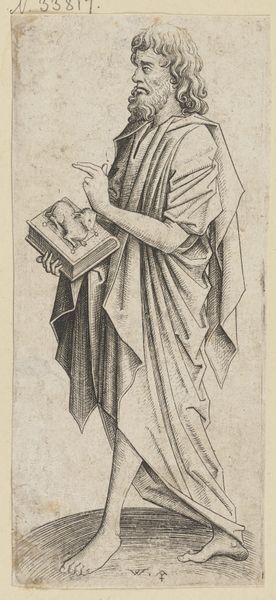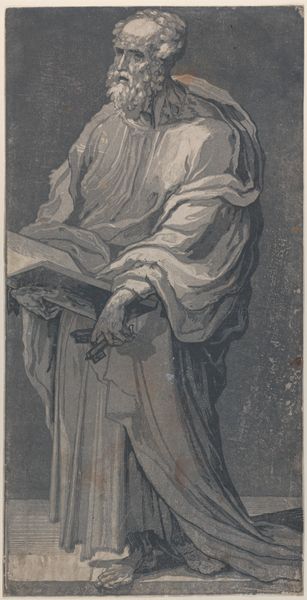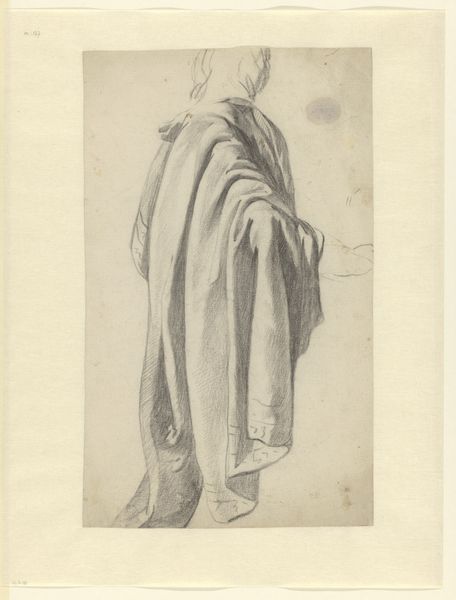
print, etching
#
portrait
#
neoclacissism
#
allegory
# print
#
etching
#
figuration
Dimensions: height 388 mm, width 250 mm
Copyright: Rijks Museum: Open Domain
Curator: This serene etching is entitled "Studie" created sometime between 1810 and 1823 by Jean Prud'hon. Editor: It has a hauntingly beautiful feel. The muted greys accentuate a pensiveness in the subject that's really striking. Curator: The allegorical figure embodies Study itself. See how she leans contemplatively on a pillar, holding a book? She seems both physically supported and mentally engaged in that space. The oil lamp adds an extra touch that indicates nighttime and continuous, perhaps obsessive study. Editor: And notice how the Neoclassical style here emphasizes rational thought and academic rigor. How might we reconcile the allegory of 'Study' with who has traditionally been afforded access to knowledge? It seems pertinent, still today, that academic study should be questioned to its accessibility. Who has historically been allowed to pursue scholarly inquiry, and how does this affect the way we think about knowledge itself? Curator: A point well taken. The lamp could also symbolize enlightenment, though I see in it, too, an ever-present classical memento mori. These images always prompt the viewers, and perhaps even the figure depicted, to muse over morality, awareness, and duty. The etching has elements of melancholy and thoughtfulness we recognize as inherently human, and not necessarily the privilege of one class or the other. Editor: But isn't that a key issue with the Neoclassical focus? Isn't the emphasis on an ideal form implicitly setting standards of academic and even corporeal perfection? Who then decides who belongs? This piece subtly prompts us to consider whose stories get etched into cultural memory. Curator: Perhaps you're right. Yet, as the figure embodies contemplation, perhaps she represents our endless pursuit of understanding – even that which challenges structures of power. Editor: Absolutely. The continuous act of "Studie," always challenging dominant perspectives is essential. It’s not enough just to know—we must perpetually question the context within which our knowledge is framed. Curator: It gives us an opportunity to recognize, appreciate and perhaps reconsider.
Comments
No comments
Be the first to comment and join the conversation on the ultimate creative platform.
